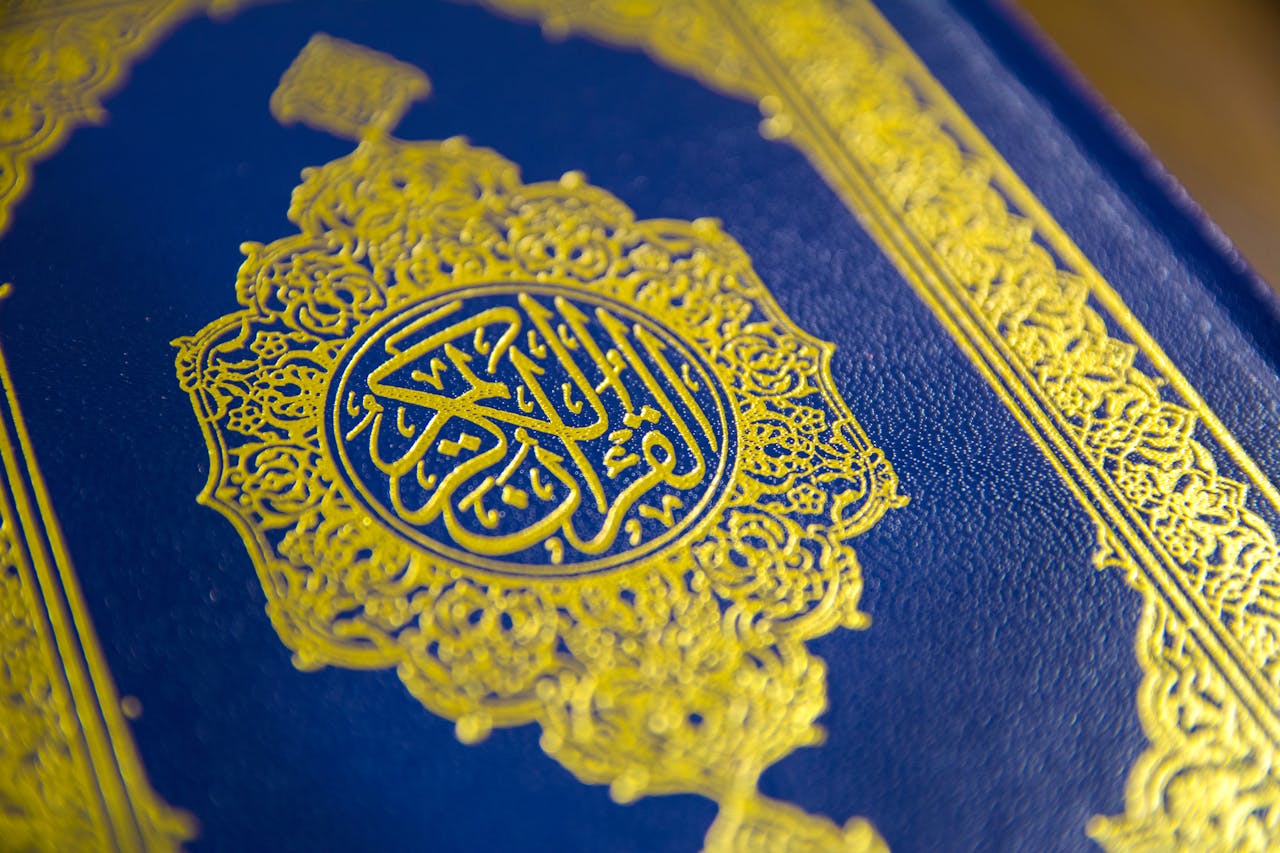Patience — known in Arabic as ṣabr (صبر) — is one of the most profound and recurring virtues emphasized throughout the Qur’an. It is not merely a moral quality but a central pillar of Islamic faith, one that defines a believer’s relationship with Allah (God), with life’s trials, and with others. The Qur’an mentions patience over ninety times, often linking it with success, faith, and divine reward.
In Islam, patience is not passive endurance but active perseverance, rooted in faith and trust in Allah’s wisdom. Through ṣabr, believers maintain spiritual composure and moral integrity, no matter what difficulties or temptations they face. This essay explores what the Qur’an says about patience — its meanings, types, significance, and rewards — and how it shapes the life of a true Muslim.
1. The Meaning of Ṣabr in the Qur’an
The Arabic word ṣabr linguistically means to restrain, to hold oneself back, or to endure with perseverance. In the Qur’an, it represents self-control in obedience to Allah, steadfastness in adversity, and forbearance against sin or anger.
Allah says:
“O you who believe! Seek help through patience and prayer. Indeed, Allah is with the patient.”
(Surah Al-Baqarah 2:153)
This verse establishes patience as a spiritual tool through which believers seek divine assistance. The phrase “Allah is with the patient” (إِنَّ اللَّهَ مَعَ الصَّابِرِينَ) indicates that patience brings the believer into the presence and support of Allah, a great honor that surpasses worldly success.
2. Patience as a Central Element of Faith
Faith (īmān) and patience (ṣabr) are intertwined in the Qur’an. Every act of worship — whether prayer, fasting, or charity — requires patience. Similarly, resisting temptation and enduring hardship also demand ṣabr.
Allah states:
“And We will surely test you with something of fear and hunger and a loss of wealth and lives and fruits, but give good tidings to the patient — those who, when disaster strikes them, say, ‘Indeed we belong to Allah, and indeed to Him we will return.’”
(Surah Al-Baqarah 2:155–156)
This verse defines patience as a faithful reaction to life’s trials. The response — “Indeed we belong to Allah…” — reflects a consciousness that life, death, and all possessions belong to God. Thus, patience becomes an act of spiritual surrender and trust rather than despair.
The Prophet Muhammad ﷺ further emphasized this link between faith and patience, saying:
“Patience is a light.”
(Sahih Muslim)
This light guides the believer through darkness — the darkness of trials, grief, or injustice — toward Allah’s mercy and reward.
3. Types of Patience in the Qur’an
Islamic scholars identify three major types of patience described or implied in the Qur’an:
- Patience in Obedience to Allah (Ṣabr ‘ala ṭā‘ah)
This means being steadfast in performing religious duties even when it is difficult. For example, maintaining regular prayers, fasting in Ramadan, or fulfilling zakat (charity) all require consistent patience. Allah praises those who endure in obedience: “Lord of the heavens and the earth and whatever is between them, so worship Him and be steadfast in His worship.”
(Surah Maryam 19:65) - Patience in Avoiding Sin (Ṣabr ‘an al-ma‘ṣiyah)
The Qur’an also encourages patience in resisting desires and temptations that lead to sin. The story of Prophet Yūsuf (Joseph) is a prime example. When tempted by the wife of al-‘Azīz, he said: “He said, ‘My Lord, prison is more to my liking than that to which they invite me.’”
(Surah Yusuf 12:33) His choice to endure hardship rather than commit sin reflects moral patience, upheld by faith and self-restraint. - Patience in Calamity and Hardship (Ṣabr ‘ala al-balā’)
This form of patience means enduring misfortune, illness, loss, or suffering without complaint against Allah’s decree. The Qur’an highlights Prophet Ayyūb (Job) as the model of this virtue: “And remember Our servant Job, when he called to his Lord, ‘Indeed, Satan has touched me with hardship and torment.’ So We responded to him and removed what afflicted him.”
(Surah Sad 38:41–44) Ayyūb’s patience exemplifies trust in Allah’s wisdom even in severe pain, for which Allah rewarded him immensely.
4. The Rewards of Patience
The Qur’an consistently connects patience with divine forgiveness, guidance, mercy, and Paradise. Allah promises extraordinary rewards to those who practice ṣabr sincerely:
“Indeed, the patient will be given their reward without measure.”
(Surah Az-Zumar 39:10)
Unlike other deeds, which have quantifiable rewards, patience receives infinite recompense — “without measure” — because it embodies the highest level of faith and endurance.
Allah also says:
“And We made from among them leaders guiding by Our command when they were patient and [when] they were certain of Our signs.”
(Surah As-Sajdah 32:24)
This verse links leadership and spiritual elevation to patience. Those who persevere through trials become examples for others, achieving both moral and spiritual greatness.
Furthermore, the Qur’an promises peace and blessings for the patient:
“Upon them will be blessings from their Lord and mercy. And it is those who are rightly guided.”
(Surah Al-Baqarah 2:157)
These divine blessings are not only in the hereafter but also bring inner peace and resilience in this world.
5. Patience in the Lives of the Prophets
The Qur’an frequently illustrates patience through the stories of prophets — moral exemplars who faced immense challenges yet remained steadfast.
- Prophet Nūḥ (Noah) preached for 950 years without losing hope. Allah praised him as: “Indeed, he was a patient servant.” (Surah Al-Isra 17:3)
- Prophet Ibrāhīm (Abraham) was tested with leaving his homeland, sacrificing his son, and facing fire — yet he surrendered patiently to Allah’s will.
- Prophet Mūsā (Moses) endured the stubbornness of his people, while maintaining composure and reliance upon Allah.
- Prophet Muhammad ﷺ, the Seal of the Prophets, is described as the embodiment of patience. He faced persecution, exile, and war, yet never lost faith or compassion. The Qur’an commands him: “So be patient, as were those of determination among the messengers.”
(Surah Al-Ahqaf 46:35)
These examples remind believers that patience is not weakness but a sign of moral strength and prophetic character.
6. The Relationship Between Patience and Prayer
Patience in Islam is deeply connected with ṣalāh (prayer). Allah repeatedly pairs the two as twin sources of strength:
“Seek help through patience and prayer.” (Surah Al-Baqarah 2:153)
Prayer renews a believer’s faith, while patience maintains it through adversity. Together, they provide spiritual balance — prayer aligns the heart with Allah, and patience keeps it firm.
The Prophet ﷺ said:
“No one has been given a gift better and more comprehensive than patience.”
(Sahih al-Bukhari)
This shows that patience, strengthened by prayer, is the key to all other virtues — gratitude, forgiveness, humility, and courage.
7. Patience in Dealing with People
The Qur’an also emphasizes patience in interpersonal relationships — especially in responding to hostility or injustice.
Allah commands the Prophet ﷺ:
“Show patience over what they say, and avoid them with gracious avoidance.”
(Surah Al-Muzzammil 73:10)
Here, patience is not submission to wrongdoing but moral restraint — responding with dignity rather than anger.
Another verse teaches:
“And not equal are the good deed and the bad. Repel [evil] by that [deed] which is better; and thereupon the one whom between you and him is enmity will become as though he were a devoted friend.”
(Surah Fussilat 41:34)
This Qur’anic principle — repelling evil with good — requires immense patience. It transforms social conflict into compassion, elevating the believer above resentment.
8. Patience as a Test of Character
Life in Islam is viewed as a test (ibtilā’), and patience is the key to passing it. The Qur’an declares:
“Do people think that they will be left alone because they say: ‘We believe,’ and will not be tested?”
(Surah Al-‘Ankabūt 29:2)
Tests reveal sincerity. Through trials, believers prove their faith not by words but by endurance.
Allah also reminds:
“And We made some of you a trial for others — will you have patience?”
(Surah Al-Furqan 25:20)
This shows that even human relationships — family, community, or society — test our patience. The true believer remains composed, choosing forgiveness and kindness over anger or revenge.
9. The Spiritual Dimensions of Patience
Patience is not just endurance of pain but spiritual maturity — trusting Allah’s plan even when it is hidden.
The Qur’an teaches that every hardship carries wisdom:
“But perhaps you hate a thing and it is good for you; and perhaps you love a thing and it is bad for you. Allah knows, while you know not.”
(Surah Al-Baqarah 2:216)
Thus, patience transforms suffering into an opportunity for growth. It teaches humility, gratitude, and dependence on Allah. The heart that practices patience becomes calm, hopeful, and illuminated by divine trust (tawakkul).
10. The Fruits of Patience in the Hereafter
The Qur’an promises eternal joy for the patient:
“Peace be upon you for what you patiently endured. And excellent is the final home.”
(Surah Ar-Ra‘d 13:24)
In Paradise, angels will greet the patient for their endurance. Their patience in worldly trials will be exchanged for everlasting peace and reward.
Allah also says:
“And the angels will enter upon them from every gate, [saying], ‘Peace be upon you for what you patiently endured. Excellent indeed is the final home.’”
(Surah An-Nahl 16:32)
This imagery captures the ultimate triumph of patience — eternal happiness and closeness to Allah.
Conclusion
The Qur’an’s message about patience (ṣabr) is timeless and transformative. It teaches that patience is not weakness or passive waiting, but an act of faith, discipline, and strength. Through patience, a believer endures hardship, resists sin, fulfills duties, and maintains hope in Allah’s promise.
Every difficulty becomes a means of purification, every delay a lesson in humility, and every loss a step closer to Allah. As Allah declares:
“Indeed, Allah is with the patient.” (2:153)
This verse summarizes the essence of patience: divine companionship. When a believer endures with faith, they are never alone — for Allah’s presence, guidance, and mercy are with them always.
In essence, patience is the heart of Islamic spirituality — the bridge between faith and destiny, between this life and the next. The Qur’an’s repeated call to patience is a call to inner strength, moral courage, and unwavering trust in the Creator who says:
“So be patient. Indeed, the promise of Allah is truth.”
(Surah Ar-Rum 30:60)




